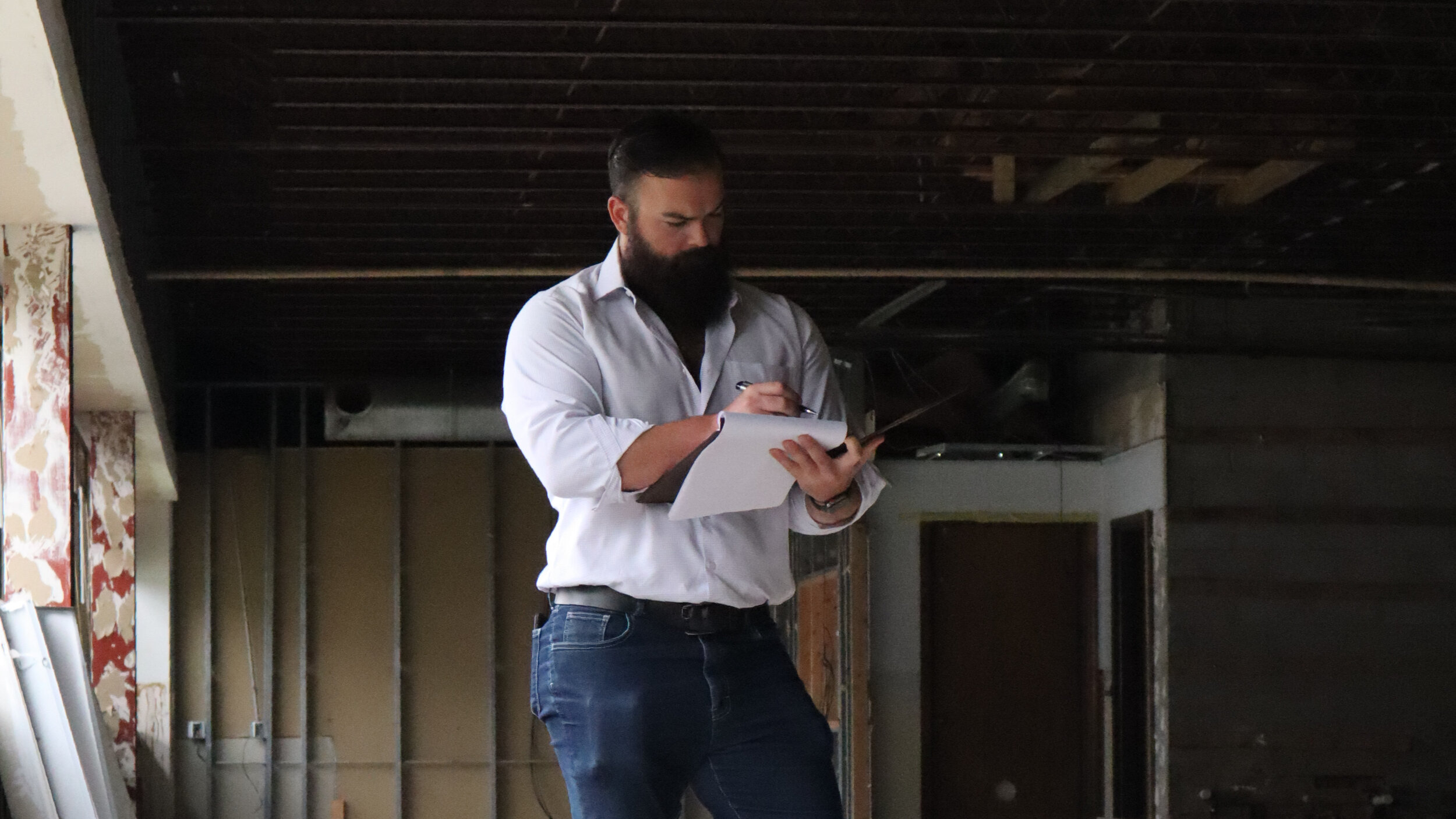Why I'm Focusing on Micro-Units in Office, Retail, and Restaurant Real Estate
The buzzword in many commercial real estate circles over the last economic cycle has been “affordable housing.”
As costs of living have continued to increase, developers, government officials, and special interest groups have been fighting to figure out how can we continue to provide affordable and attainable housing for those in need.
But no one is talking about the affordability crisis for entrepreneurs and startups.
The cost of commercial space has also risen dramatically - sometimes 50% or more in some cases around Nashville. Micro-units may be the way for entrepreneurship to continue thriving in an evermore expensive environment - here’s why.
First, What Are Micro-Units?
Maybe there’s an official definition out there, and if there is - I just don’t know it.
But micro-units are any type of commercial or multifamily space that is smaller than the market average. And that, of course, will vary from market to market.
In Nashville, for example, 500 square feet could be considered a micro-unit, whereas New York City might be closer to half that size.
Micro-units are well-known throughout the multifamily world and are starting to catch on in commercial space throughout the country, though they’ve been prevalent in high-density urban cores, such as New York City, Chicago, and LA for quite some time.
Their Size, Alone, Promotes Affordability
The smaller a space is, the less it will rent for per month compared to an otherwise equivalent but larger space.
Basic economics, right?
But for some reason, outside of the most dense urban cores in the United States, smaller commercial units just haven’t been readily available. Developers either haven’t seen the demand potential for these units or haven’t cared to serve them, considering how small these units can be compared to the rest of an office building or shopping center.
In fact, until this past year, the smallest restaurant space we had worked on was around 1,200 square feet.
My latest project, The Wash, is a car wash conversion into 6 micro-restaurants, each of which is around 380 square feet. As the landlords, we benefit from being able to charge a premium price per square foot, considering how small the units are, but the tenants benefit because their total monthly overhead is significantly lower than if they opened up a traditionally sized restaurant.
They Don’t Require Any Government Involvement
Affordable housing is often too complicated for most developers to deal with.
Just about every developer I come across is interested in providing some sort of affordable or attainable housing but has avoided doing so since the process to actually get approved for “officially designated” affordable housing is ridiculous.
And since developers have to pay market rates for the land, development, and construction on a project, they have to ask market rates for their units, so without government involvement, it’s nearly impossible to provide that housing.
Micro commercial units, on the other hand, require no government involvement or need for tax breaks or assistance, since they will actually rent for above-market rates on a per square foot basis.
Let’s use my units at The Wash as an example. Here, the rate was all-bills-paid (ABP), which meant that we sent our tenants one bill and we covered the utilities, common area maintenance, etc.
So, at 380 square feet, we charged around $100 per square foot, which came in at $3,250 per month, all-in.
Sure - $100 per square foot sounds like an incredibly high number for Nashville (it’s around 2.5x to 3x the market rate for restaurant space), but on a monthly basis their total rent is only $3,250, which makes these spaces the most affordable restaurant spaces in Nashville.
We were able to provide affordable and attainable space for these restaurateurs without years of applying for tax credits and banging our heads against a wall.
They Provide More Flexibility
Commercial leases can be intimidating.
Especially for the startup entrepreneur or small business owner that isn’t sure which direction their company will take or how they will grow in the near future.
So signing a long-term lease and making such an extraordinary commitment just doesn’t make a lot of sense. Landlords, on the other hand, prefer to have these longer terms as it gives them more stability in their investments and allows them to recoup any expenses of reletting the space, such as commissions, commercial buildouts, etc.
Micro-units provide far more flexibility to both the landlords and the tenants.
Landlords can charge higher rental rates per square foot while providing a less-expensive alternative to traditional commercial space. They can also fit more tenants into the property than they could have before, helping them to diversify their risk across more income sources.
Tenants often have the flexibility to sign 1-year leases or less, instead of the 3- to 5-year leases that are more common. They also benefit from lower monthly overhead and only have to take the space they need.
They Lower the Barrier of Entry
With lower overhead and more flexible lease terms comes a lower barrier of entry for startups and entrepreneurs.
And we’ve all seen what a lower barrier of entry can do in the commercial realm.
Take food trucks, for example. The food truck craze hit Nashville in the last 10 years and opened the doors to many creative concepts that we may have never seen, otherwise.
For example - one of the more popular restaurants in the last decade is The Grilled Cheeserie - a group that started off in a food truck that serves some damn good grilled cheeses. Had they needed to come up with the capital to open a full brick and mortar restaurant first and convince investors or lenders that a grilled cheese restaurant would be successful, they may not have gotten off the ground.
Micro-units provide a more affordable “first-step” option for creative startups in a very similar fashion to food trucks.
Not to mention the fact that if an entrepreneur wants to test a new concept or venture without breaking the bank and signing their lives away, they can now do it!
They’ve Also Been Relatively COVID-Proof
Which is a fairly important consideration now in 2021.
Across our entire portfolio of commercial real estate in Nashville and Chattanooga, our micro-units picked up in leasing velocity through the pandemic.
We had one deal where we signed 6 leases from March through September before we ended up getting an offer to sell the building. No other buildings in our portfolio performed like that since most businesses had employees working from home or were a bit more cautious to lease new space.
In our experience, these 1-5 person teams that occupy micro-units either have to (due to the nature of their job) or prefer to work out of commercial space and not from home.
About The Author:
Tyler Cauble, Founder & President of The Cauble Group, is a commercial real estate broker and investor based in East Nashville. He’s the best selling author of Open for Business: The Insider’s Guide to Leasing Commercial Real Estate and has focused his career on serving commercial real estate investors as a board member for the Real Estate Investors of Nashville.


















Economic cycles are a reality in commercial real estate. Whether you’ve been investing for years or just closed on your first property, one thing is certain: a downturn will eventually come. The question isn’t if, it’s when. And when it does, the investors who prepared in advance will be the ones who protect their cash flow, preserve tenant relationships, and come out stronger on the other side.
If the last few years taught us anything, it’s that adaptability is everything. Interest rate hikes, supply chain bottlenecks, inflation, and remote work have reshaped how commercial space is used—and challenged even the best operators. But in every market cycle, there’s opportunity for those who plan ahead.
In this article, we’ll explore how to recession-proof your commercial property—from tenant strategy and expense controls to financing and future repositioning. Whether you own flex space, retail, industrial, or office, these strategies are designed to help you weather economic uncertainty and stay in control.